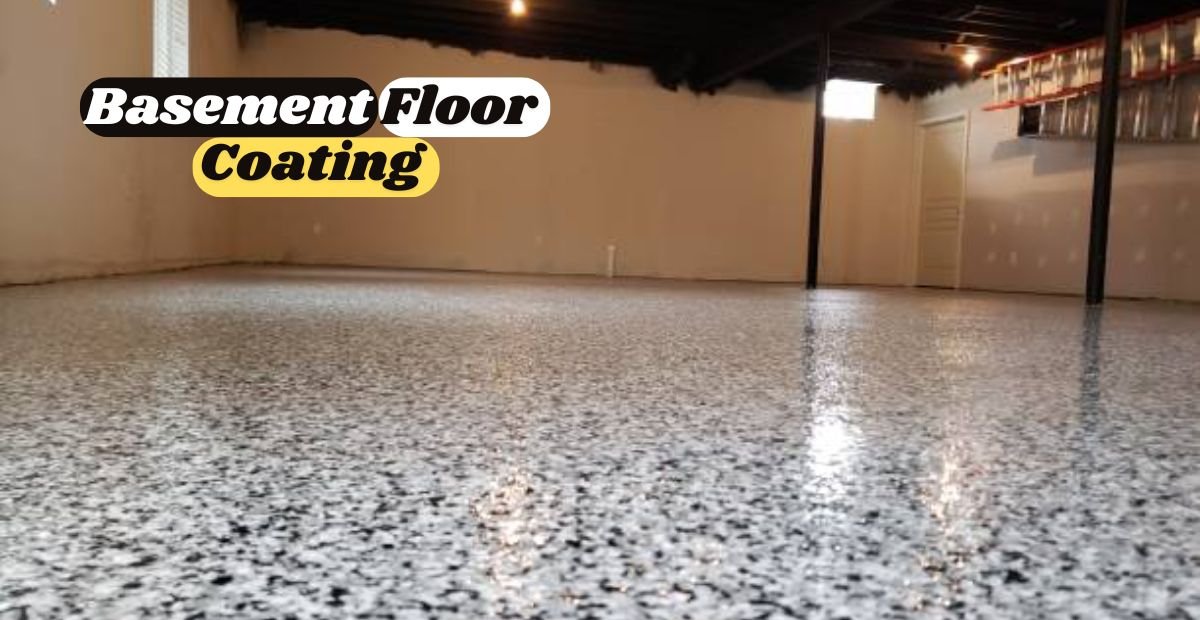Basement Floor Coating Trends Every Homeowner Should Know 2025

In 2025, basements are being transformed into stylish and functional spaces rather than just storage areas. The right basement floor coating plays a key role in making that shift possible. It adds durability, resists moisture, and enhances the overall look of the floor. From epoxy to eco-friendly and decorative finishes, homeowners now have more choices than ever. These coatings not only protect the surface but also align with modern design trends. Choosing the right one can truly elevate your basement into a usable and inviting space.
Why Basement Floor Coating Matters More Than Ever
In 2025, more homeowners are turning their basements into livable spaces, from home gyms to media rooms. That makes basement floor coating more important than ever. A good floor coating protects against moisture, cracks, and wear—extending the life of your concrete floor while improving its look.
Many people overlook basement floors because they’re not visible like kitchen or living room flooring. But untreated concrete can absorb moisture, become stained, and even crack. With the right coating, you can avoid expensive repairs and create a clean, functional space. The new trends focus not only on strength but also on aesthetics and ease of maintenance. Whether you’re renovating or building, choosing the right coating sets the foundation—literally—for long-term success.
Epoxy Coatings: Still a Strong Contender in 2025
Epoxy has remained a top choice in basement floor coating for years, and it continues to lead in 2025. It’s highly resistant to chemicals, water, and abrasions, making it perfect for high-traffic or multi-use basement areas. Epoxy coatings also provide a glossy, professional finish that many homeowners love.
Modern epoxy systems offer more design variety, including metallic finishes, decorative flakes, and even 3D visual effects. It’s also now easier to apply with improved drying times and self-leveling properties. Although epoxy can be a bit tricky to install without professional help, the long-term durability and sleek appearance make it worth considering. If you’re looking for a high-performance coating with a polished look, epoxy remains one of the best choices.
Polyurea and Polyaspartic Coatings: The New Favorites
In 2025, many homeowners are switching to advanced alternatives to traditional epoxy. Among the top choices, polyurea and polyaspartic coatings are quickly gaining popularity for their performance and sleek appearance.
Polyurea Coatings:
Polyurea is quickly becoming a top contender in the world of basement floor coating due to its extreme durability and fast curing time. It resists chemicals, abrasions, and moisture, making it ideal for high-traffic areas or utility zones. Homeowners also appreciate that it can be applied in a wide range of temperatures. Although it’s a bit more expensive than epoxy, its longevity and low maintenance needs make it a smart long-term investment.
Polyaspartic Coatings:
Polyaspartic coatings are a type of polyurea, but they come with added advantages like UV stability and even faster drying times. These coatings offer a glossy, professional finish while being low in VOCs—making them a safer option for indoor spaces like basements. They’re also more flexible, which means they can better handle expansion and contraction due to temperature changes. For homeowners who want a quick, clean, and long-lasting solution, polyaspartic is a standout choice in 2025.
Concrete Stains and Dyes: Budget-Friendly & Stylish
Concrete stains and dyes are popular choices for homeowners seeking affordable yet stylish basement floor coating solutions. They offer a decorative finish without the high cost of premium coatings. Whether you want earthy tones or vibrant colors, stains and dyes provide plenty of flexibility. When sealed properly, they also deliver decent durability for light to moderate use.
| Type | Color Style | Finish Look | Budget |
| Acid-Based Stain | Earthy, natural tones | Mottled, variegated | Low |
| Water-Based Stain | Bold, wide range | Smooth, consistent | Low |
| Concrete Dye | Bright, vivid shades | Rich, decorative surface | Low–Moderate |
Slip-Resistant Finishes for Safer Basements
Safety is becoming a key factor in basement floor coating trends. As basements are increasingly used for fitness, play areas, and offices, the need for slip-resistant surfaces is growing. In 2025, manufacturers are offering more coatings with textured finishes and added grip.Additives like silica sand or aluminum oxide can be mixed into coatings to improve traction. These finishes are especially helpful in basements that experience moisture or have utility zones. Slip-resistant coatings don’t have to be dull or industrial-looking—many now come in attractive styles and colors. They provide peace of mind for families with kids, seniors, or pets using the basement space frequently.
Moisture Barrier Coatings: A Must for Long-Term Protection
No matter the design or finish, moisture remains a basement’s biggest enemy. That’s why basement floor coating systems with built-in moisture barriers are highly recommended in 2025. These sealers prevent water from seeping through the slab, helping reduce mold, mildew, and surface damage.
Moisture barrier primers are often used under epoxy or polyurea coatings to strengthen their effectiveness. Some newer products combine coating and barrier in one, simplifying the application process. These solutions are especially critical for basements in areas prone to high humidity or occasional flooding. Investing in a coating that includes moisture protection ensures your floor stays beautiful and durable for years.
Eco-Friendly Options Are on the Rise
Sustainability is a growing concern among homeowners, and that’s reflected in basement floor coating trends for 2025. Many new coatings are low in VOCs (volatile organic compounds) and use water-based formulas that are safer for both people and the environment.Some manufacturers also offer coatings made with recycled materials or that qualify for green building certifications. Eco-friendly doesn’t mean you have to compromise on performance—many of these coatings offer strong adhesion, stain resistance, and easy cleanup. Choosing a sustainable option lets you upgrade your basement while reducing your environmental footprint.
Decorative Finishes to Match Any Interior Style
Gone are the days of plain gray concrete floors. In 2025, basement floor coating systems are designed to match your personal aesthetic. Whether you’re going for modern minimalism, rustic charm, or bold colors, there’s a coating style for you.
Popular decorative options include marble-like epoxy, quartz-infused coatings, and custom stencil patterns. You can even mimic the look of tile or stone without the hassle of grout or installation. These stylish finishes allow you to turn your basement into a true extension of your living space—one that’s both functional and fabulous.
Conclusion
Choosing the right basement floor coating in 2025 is about more than just looks—it’s about durability, safety, and function. With a range of innovative options available, from high-gloss epoxies to eco-conscious coatings, you can transform your basement into a space you’ll love using year-round.Whether you’re finishing a new build or renovating an old basement, the latest trends make it easier than ever to find a solution that fits your needs and style. Prioritize moisture resistance, slip safety, and visual appeal to ensure your flooring choice is both practical and lasting.
FAQs
What is the best basement floor coating for durability?
Epoxy and polyurea are considered the most durable coatings for basement floors. They resist wear, chemicals, and moisture, making them ideal for long-term use.
Can I apply basement floor coating myself?
Yes, DIY kits are available for epoxy and stains. However, for professional-grade coatings like polyurea, hiring a contractor is often recommended for best results.
How long does a basement floor coating last?
With proper maintenance, epoxy can last 10–15 years, while polyurea may exceed 20 years. Stains and dyes typically last 3–5 years before needing a refresh.
Is basement floor coating waterproof?
Most coatings are water-resistant, but adding a moisture barrier primer enhances waterproofing. This is crucial in basements prone to humidity or minor leaks.
Are basement floor coatings safe for indoor air quality?
Yes, especially newer low-VOC and water-based formulas. Always ventilate the space well during application, and opt for eco-friendly products where possible.




